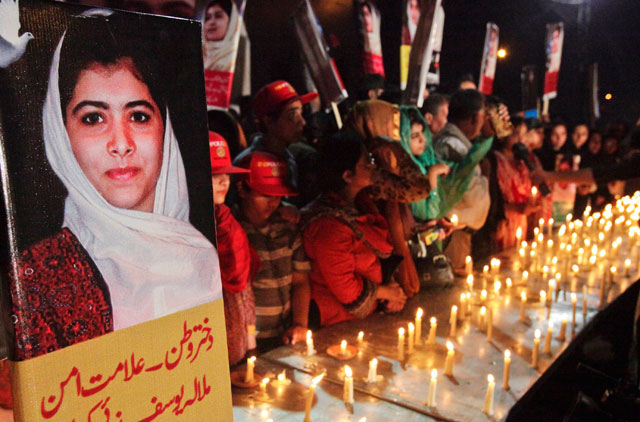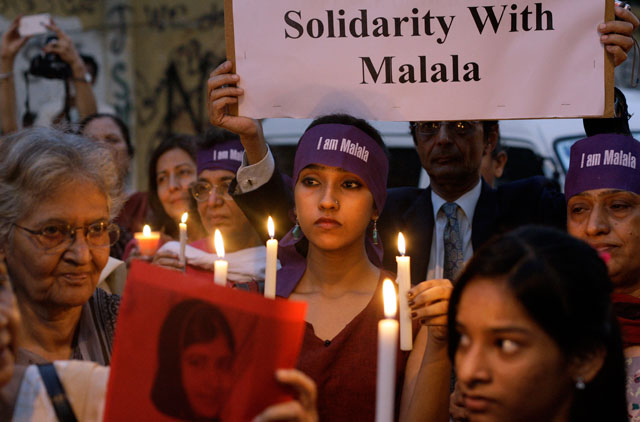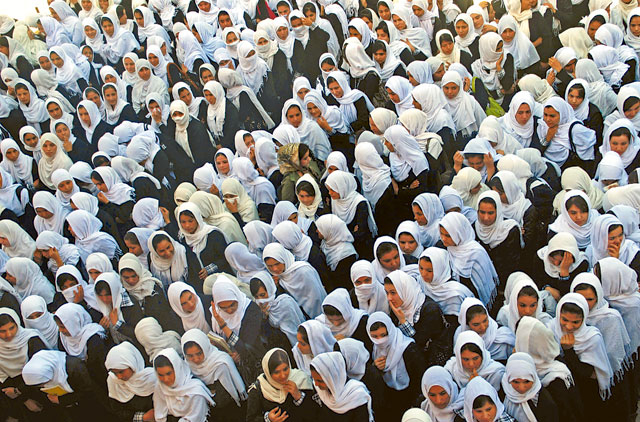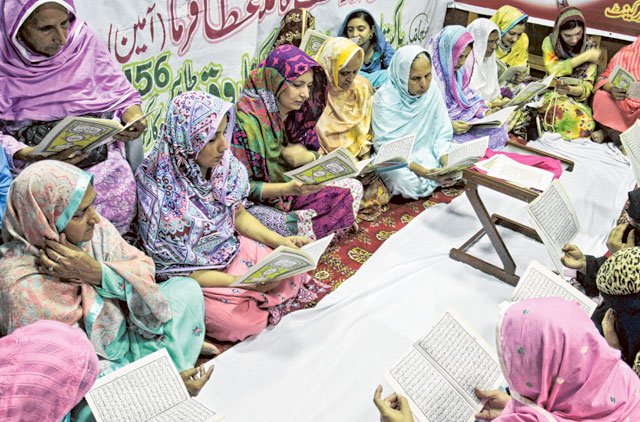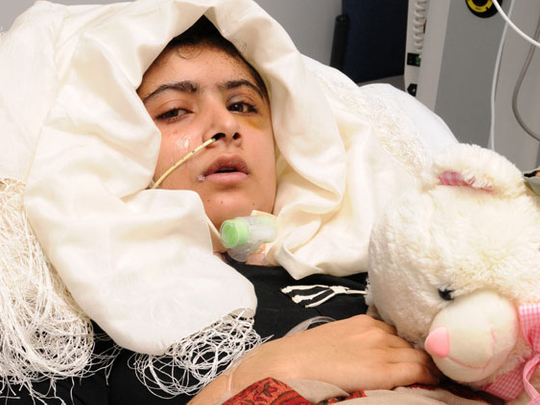
London: Malala Yousafzai, the Pakistani schoolgirl shot in the head by the Taliban, has been able to stand with help for the first time, doctors treating her at a British hospital said on Friday.
She is unable to talk because a breathing tube has been inserted into her windpipe but she can communicate by writing, said Dave Rosser, the medical director at the Queen Elizabeth Hospital in Birmingham, central England.
Despite the news of Malala’s progress, he warned that she is “not out of the woods yet”, her doctors’ chief concern being an infection in the bullet track through her head.
Malala was shot on a school bus in the former Taliban stronghold of the Swat valley on October 9 as a punishment for campaigning for the right of girls to an education, in an attack which outraged the world.
On Monday she was flown in an air ambulance from Pakistan to Birmingham, Britain’s second city, where she is being cared for in the hospital that treats British soldiers seriously wounded in bomb blasts and shootings in Afghanistan.
“Malala is still showing some signs of infection which is probably related to the bullet track, some infection in the bullet track which is our key source of concern,” Rosser told reporters outside the hospital.
“It’s clear that she is not out of the woods yet.
“Having said that, she is doing very well. In fact, she was standing with some help for the first time this morning when I went in to see her.
“She is communicating very freely — she is writing.”
He explained that Malala’s airway was swollen by the bullet passing through, so doctors inserted a tracheostomy tube to protect it.
The tube means she cannot speak but there is no reason to believe she would be unable to talk once it is removed, which may happen in the coming days.
Rosser explained how the bullet went through the face of the girl, who the hospital now say is 15 although she has previously been described as 14.
“She was struck just above the back of the left eye,” he said.
“The bullet went down through the side of her jaw, damaging the skull, the jaw joint on the left hand side, went through the neck and lodged in the tissues above the scapula — the shoulder blade — on the left.
“The bullet was removed in Pakistan pretty much straight after the event.”
He said specialists thought she would need a few weeks to rehabilitate, to make sure that the infection has cleared up before she could undergo surgery.
“Then her skull will need reconstructing either by reinserting the piece of bone that was removed initially or with a titanium plate,” Rosser said.
“Her jaw joint may need further work down the line but that remains to be assessed in a couple of weeks’ time.”
Malala came to prominence with a blog for the BBC highlighting atrocities under the Taliban, the hardline Islamists who terrorised the Swat valley from 2007 until an army offensive in 2009.
Donations towards her care, which is being funded by Pakistan, are being received by the Queen Elizabeth Hospital’s charity while thousands of people from across the globe have left messages of support on the hospital’s website.
Cards, letters and gifts to Malala are being handled by the Pakistani consulate in Birmingham.


